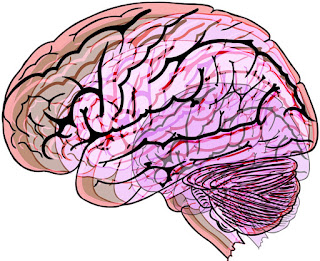Getting Older: Why Neuroplasticity Matters
So what is neuroplasticity?
neu·ro·plas·tic·i·ty noun: the ability of the brain to form and reorganize synaptic connections, especially in response to learning or experience or following injury. "neuroplasticity offers real hope to everyone from stroke victims to dyslexics" (https://languages.oup.com/google-dictionary-en/)
Neuroplasticity, also known as neural plasticity, or brain plasticity, is the ability of neural networks in the brain to change through growth and reorganization. These changes range from individual neuron pathways making new connections, to systematic adjustments like cortical remapping. (https://en.wikipedia.org/wiki/Neuroplasticity)
 |
| The Dynamic Brain |
"Neuroplasticity is an umbrella term referring to the ability of your brain to reorganize itself, both physically and functionally, throughout your life in response to your environment, behavior, thinking, and emotions. Science used to believe that the brain only changed significantly during critical periods in childhood. While it’s true that the brain is much more plastic in youth and capacity declines with age, plasticity happens from birth until death. Harnessing neuroplasticity as an adult does require extra effort under specific conditions, but it can be accomplished. What you pay attention to, what you think, feel, and want, and how you react and behave physically shape your brain." (https://thebestbrainpossible.com/neuroplasticity-mindfulness-brain-mental-health/)
Couldn't have said it better myself!
Probably Norman Doidge is more directly responsible than anyone else for popularizing the notion of the benefits of neuroplasticity with his book, 'The Brain That Changes Itself' in 2007. Since then there have been many more: 'The Brain's Healing Way,' 'Neuroplasticity, Your Brain's Super Power,' 'The Mind and the Brain: Neuroplasticity and the Power of Mental Force,' 'The Power of Neuroplasticity,' etc. It started out as a theory but now the brain's capacity to change itself is a widely accepted fact.
What does the fact of neuroplasticity mean? It means your brain can change. Your brain can grow. Your brain can heal itself. Your brain doesn't have to get worse as you get older. It can even get better.
When you learn something, the brain has to change to store the new memory. So every time you learn something new you are rewiring your brain. You're making it better.
The challenge then, in managing the aging brain, is to explore and exploit every possible way of harnessing neuroplasticity to keep the mind sharp and fully functional for as long as possible.
David W. Barr, PhD.

Comments
Post a Comment